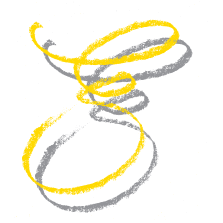Le nozze di Figaro
Over the past ten years, the Saffron Opera Group has developed considerable form in concert performances of, mainly, Wagner and Mozart, to the extent that perhaps a director might have been credited for this fluent and dynamic concert staging of Mozart’s great comedy, with a few props to register concealment and disguise, neatly choreographed stage movement, and a shared sense of purpose from the singers.
And once again, Saffron Opera fielded an astutely chosen cast, led by Lucy Hall’s wise and sassy Susanna, Pauls Putnins’ cleverly realised Count, and Frederick Long’s personable Figaro. Initially, Long seemed too much of a regular guy to make him a plausibly subversive opponent to the Count, but soon his attractive baritone rose to the occasion in ‘Se vuol ballare’, adding a bit of steel, and he hit his buffo stride in Act 4.
Whatever she sang, Yvonne Howard’s Marcellina stole the show with the smallest facial gesture radiating copious mischief, while her focus on words and phrasing is a lightly-worn masterclass. The company she kept fielded a shamelessly self-important Bartolo from Henry Waddington, who delivered a sublimely pompous ‘La vendetta’, backed up by Harry Nicholls’ exquisitely waspish Basilio. Emily Hodkinson was tall, gawky and irresistible as Cherubino, giving the hormonal teenager’s two arias impressive urgency, while Philip Clieve’s Curzio and William Stevens’ Antonio were vividly drawn and projected – Clieve’s tenor is particularly adaptable and nuanced when it comes to caricature. Emily Vine, a light, soubrettish soprano, was a heartbreaker in Barbarina’s Cavatina, blending gravitas and poignancy to great effect, and the two eye-candy bridesmaids, Charlotte Forfar and Rachael Liddell, used their moments of charm well.
Ella de Jongh’s noble soprano was perhaps a bit too bright and baroque to embrace the Countess’s more vulnerable side, but her consistently poised and stylish singing won me round. And as the wife to the Latvian bass Pauls Putnins’ puzzled, flamboyant Count, she had good cause for vulnerability. Putnins’ account of Almaviva’s big sequence opening the second half was impressive, aristocratic alpha-male authority constantly undermined by his quicker-witted household, all of it realised in layered, cleverly imagined singing and fixed by an imposing stage presence. You felt it was almost a relief for the Count when he sings ‘Contessa, perdono’. Lucy Hall had everything you want from Susanna – elegance, manipulation leavened by charm, an ability to galvanise the other characters, with gleaming, shapely singing underpinned by the unexpected thrill of power and weight. Her throw-away sign-off to the Sextet was a tear-jerking delight.
Saffron Opera’s indefatigable Music Director Michael Thorne has a sure dramatic sense, very much to the fore in the company’s Don Giovanni last year, so I was surprised by a rather stately account of the overture, but thereafter things became more flexible and theatrical, with lots of fluent recitative nudging things forward. The woodwind and timps provided most of the Mozartean attitude and bounce, and the orchestral roles in the Countess’s and Barbarina’s arias were beautifully judged, as was the pressure Thorne gradually applied to the opera’s finale. The Saffron Opera 25-strong chorus were nimble and, as usual, thoroughly rehearsed. Next up for Saffron Opera is Die Meistersinger on September 15.
Peter Reed
